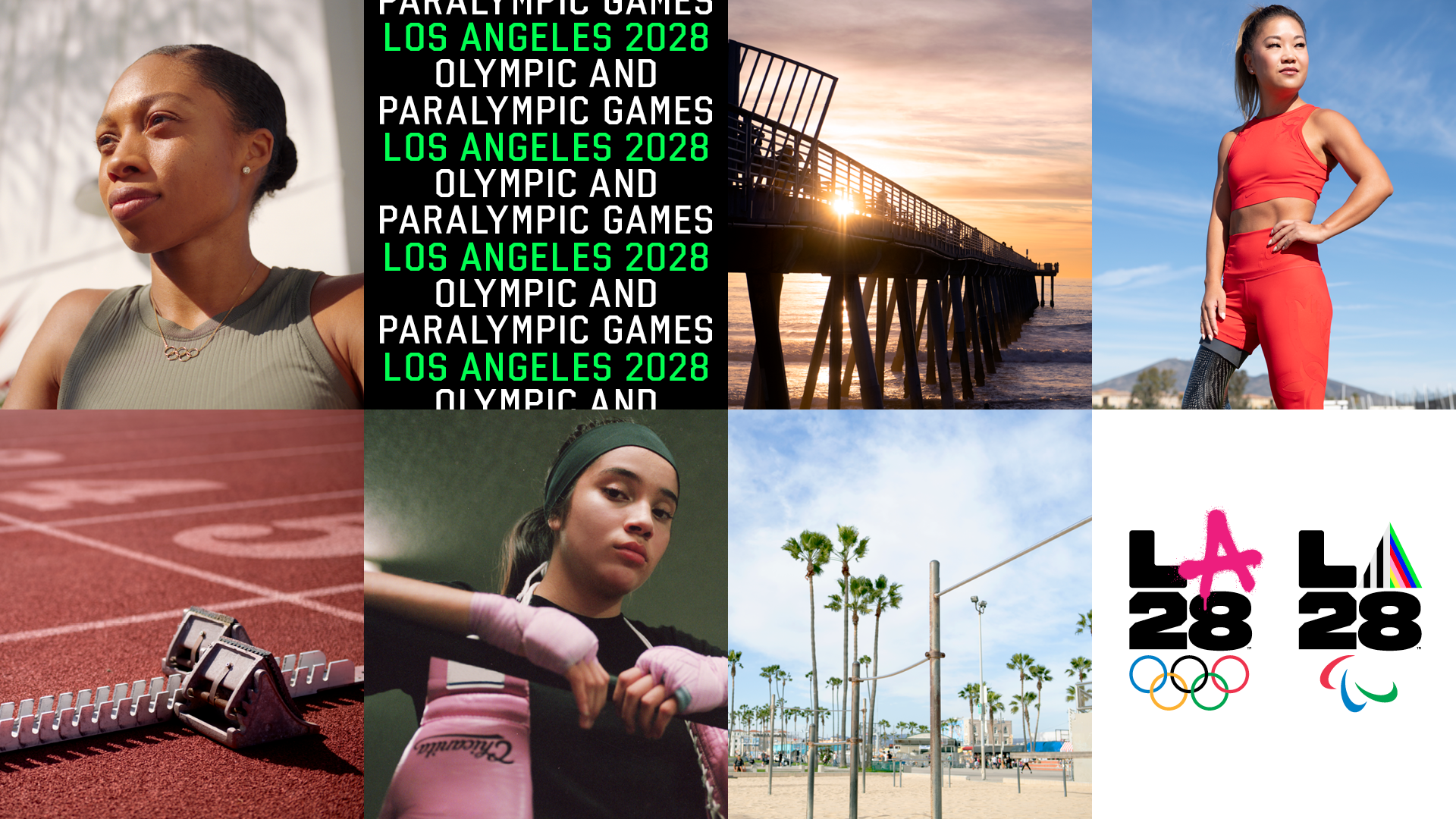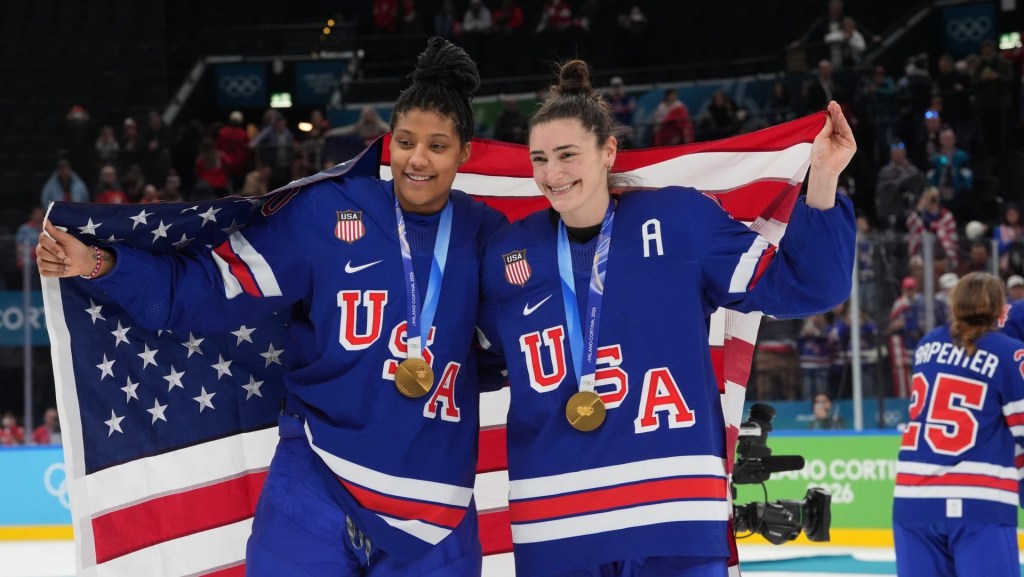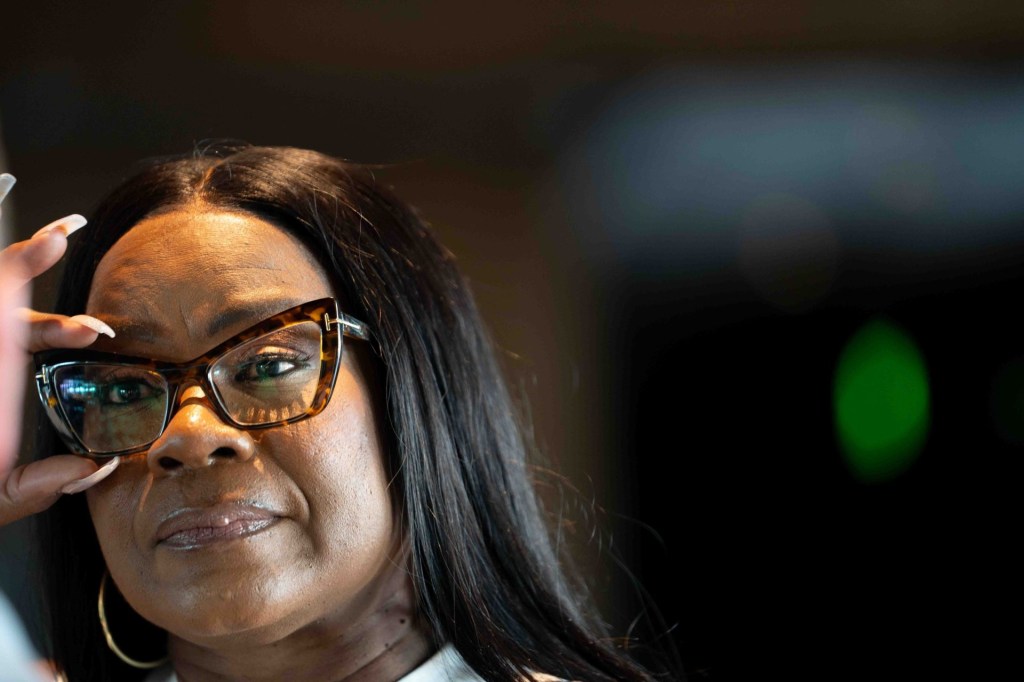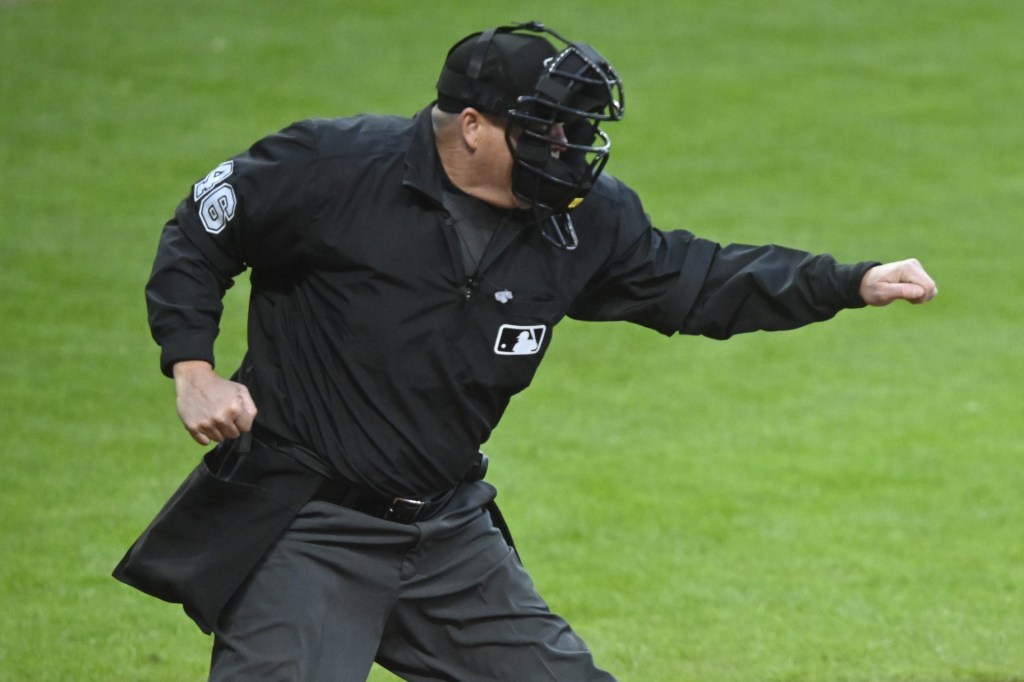Historically, anticipation builds and a decent amount of fanfare is made about an upcoming Olympics’ official logo announcement. Organizers tout their ability to summarize the Olympic movement and their specific games’ mission in one symbol.
But LA 2028 is taking a different approach amid unprecedented times for athlete and community empowerment.
“We always set the bar high for ourselves in terms of really representing LA and we struggled for a while between this tension for traditional emblems for all the sports, which are static, and LA, which is a dynamic and changing city and a journey which is eight years long,” LA 2028 Chairman Casey Wasserman said on a conference call Aug. 31.
During their 18-month process to land on a logo, organizers realized that just one would not be enough. So on Sept. 1, 26 example versions of a customizable logo were revealed. They are designed by Olympic and Paralympic athletes, community leaders, illustrators, and celebrities.
The “L” and “28” above the Olympic or Paralympic rings remain constant in every version, but the “A” changes in each. One version includes a stylized “AF” for decorated American sprinter Allyson Felix, for example, but Wasserman wants to create a site where fans will be able to customize their own versions and put it on merchandise as well.
Since the logo announcement, some Olympians have shared their versions in short videos on social media.
“I hope our consumer products people aren’t listening, because my answer, and where I want us to be, is true individuality to make your own Olympic logo,” Wasserman said.
Wasserman said that there are plans to release additional versions of the logo in the runup to the Games. He also said that there will be physical representations of the logo placed around the city.
Organizers for Paris 2024 took a starkly different approach. When the logo was announced in October 2019, it was with the tagline “A Single Emblem for Paris 2024,” in reference to combining the Olympic and Paralympic logos into one.
The logo for Tokyo 2020 — now 2021 — is a circular “harmonised chequered emblem” that represents the participating nations and is supposed to promote their “unity in diversity.”
Wasserman said the LA 2028 logo plan was made before the murder of George Floyd in May and ensuing athlete protests and demands for change.
In August, however, Wasserman wrote a letter to International Olympic Committee President Thomas Bach calling for his organization to make changes to Rule 50 of the Olympic Charter — which prohibits political statements at the Olympics — and allow anti-racism advocacy.
Olympic athletes have called for abolition of the rule for years, but the conversation was reignited when hammer thrower Gwen Berry raised her fist during the national anthem and fencer Race Imboden knelt on the medal stand at the 2019 Pan American Games. The United State Olympic and Paralympic Committee handed both a one-year probation.
Berry called for a public apology from USOPC CEO Sarah Hirschland after the death of Floyd, when the governing body issued a statement saying it “stands with those who demand equality.”
Shortly thereafter, Hirschland announced the creation of an athlete-led committee to “challenge the rules and systems in our own organization that create barriers to progress,” including the right to protest.
Wasserman said that he does not believe that anti-racist speech is political speech, which led him to send the letter to Bach.
“I think athletes, given that they come from such a incredible, diverse group of countries by definition, really need to drive the conversation, and I just urge President Bach to really be both thoughtful and aggressive in moving towards that result,” Wasserman said.



![[Subscription Customers Only] Jun 15, 2025; Seattle, Washington, USA; Botafogo owner John Textor inside the stadium before the match during a group stage match of the 2025 FIFA Club World Cup at Lumen Field.](https://frontofficesports.com/wp-content/uploads/2026/02/USATSI_26465842_168416386_lowres-scaled.jpg?quality=100&w=1024)

![[Subscription Customers Only] Jul 13, 2025; East Rutherford, New Jersey, USA; Chelsea FC midfielder Cole Palmer (10) celebrates winning the final of the 2025 FIFA Club World Cup at MetLife Stadium](https://frontofficesports.com/wp-content/uploads/2026/02/USATSI_26636703-scaled-e1770932227605.jpg?quality=100&w=1024)











